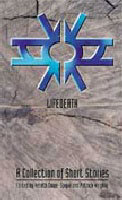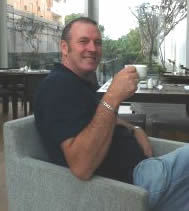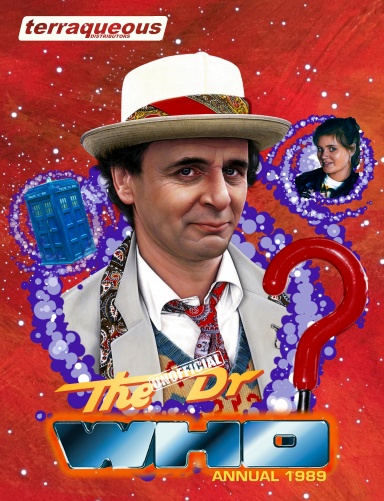
Part of Series
For over a thousand years, he's fought to hold back death. But some problems can't be fought on the scale he's used to. Doctor Who: LifeDeath is a collection of short stories that presents new problems for the Doctor - the murkiness of cultural relativism, the ethics of voluntary oppression and the fundamental essence of his own inhumanity. Inside these pages, the Doctor encounters the man who killed him, discovers the positive side of terrorism and learns the difference between fighting a tyrant and fighting a culture, while elsewhere, one of his incarnations is confronted with an unexpected question: Is the suicide of a Time Lord also a murder? Meanwhile, the avatar of the Time Lords gazes into the abyss and finds a mirror entity, a former companion faces cosmic ennui and two schoolteachers from Coal Hill suffer the terrifying ordeal of abduction by a psychopath. My Brother and the Doctor by Ben Brown. In which a schoolboy in the 1970s wrestles with his brother's love of a tired old television programme. At the Beach by Simon Bucher-Jones. In which the third Doctor confronts an unusual dilemma inherited from his former self. Something Terribly Important by Evan Waters. In which Zoe Herriot receives an offer she dare not refuse. An Act of Terrorism by William Billingsley. In which the seventh Doctor fights fire with fire. Hayat by Doris Speed-Keller. In which the fifth Doctor discovers the limits of interference. Raisin Jack and the Dead Gang by Chris Heffernan. In which the seventh Doctor takes on the living to save the dead. The Unpublished Diaries of Ian Chesterton by Patrick Neighly. In which two teachers from Coal Hill school are kidnapped by a madman. Acts of Kindness by Alex Steer. In which the fifth Doctor buys a slave. Interlude by Peter Anghelides & Stephen Cole. In which Fitz Kreiner strikes out. A cut segment from The Ancestor Cell. Who Tortures the Torturers? by Jamas Enright. In which the second Doctor doesn't know which way to turn the tables. A Meeting of Minds by Craig Hinton. In which the TARDIS meets its match. Liberation by Kereth Cowe-Spigai. In which the eighth Doctor finds his usual methods useless. Key to the Future by Mark Phippen. In which the seventh Doctor wagers life. Seasons of Fear by Paul Cornell. In which the eighth Doctor meets the man who killed him. Exclusive prose novelization of the upcoming Big Finish full-cast CD adventure. Grandmother Clause by Phil Pascoe. In which Faction Paradox take a holiday. Literally. Going Nowhere by David Agnew. In which Harry Sullivan does just that. Skulduggery? by Keith Topping & Suzanne M Campagna. In which Liz Shaw receives an ill-timed visit. Includes exclusive introduction by Kate Orman and three additional essays.
Authors

Simon Bucher-Jones is a British author, poet, artist, and amateur actor, best known for his Doctor Who novels for Virgin and the BBC and as a contributor to the Faction Paradox spin-off series. He is known for a hard SF approach. He has also written Cthulhu Mythos short stories. He also reviewed books for the Fortean Times, and for small press papers. He maintains a blog at http://www.simonbjones.blogspot.com where he is, among other projects, gradually turning all the Star Wars films into Shakespearean plays. He also markets a range of Cthulhu Mythos artwork t-shirts and mugs. He is also a major contributor of 'hidden cities' to the 'blind atlas' meme. His poetry has appeared in the Journal of the British Fantasy Society.

Anghelides' first published work was the short story "Moving On" in the third volume of the Virgin Decalog collections, which led to further short stories in the fourth collection and then in two of the BBC Short Trips collections that followed. In January 1998, his first novel Kursaal was published as part of BBC Books' Eighth Doctor Adventures series on books. Anghelides subsequently wrote two more novels for the range, Frontier Worlds in November 1999, which was named "Best Eighth Doctor Novel" in the annual Doctor Who Magazine poll of its readers, and the The Ancestor Cell in July 2000 (co-written with departing editor Stephen Cole). The Ancestor Cell was placed ninth in the Top 10 of SFX magazine's "Best SF/Fantasy novelisation or TV tie-in novel" category of that year. Anghelides also wrote several short stories for a variety of Big Finish Productions' Short Trips and Bernice Summerfield collections. This led, in November 2002, to the production of his first audio adventure for Big Finish, the play Sarah Jane Smith: Mirror, Signal, Manoeuvre. In 2008, he wrote a comic which featured on the Doctor Who website

Craig Paul Alexander Hinton was a British writer best known for his work on spin-offs from the BBC Television series Doctor Who. He also wrote articles for science fiction magazines and was the Coordinator of the Doctor Who Appreciation Society. He taught mathematics in London, where he was found dead in his home on 3 December 2006. The cause of death was given as a heart attack. Hinton first was known for his articles about science fiction television programmes, including Doctor Who and Star Trek. These brought him to the attention of the editor of Marvel UK's Doctor Who Magazine, who offered him the job of reviewing merchandise for the magazine's Shelf Life section. Whilst writing for the magazine, Hinton had his first novel published. The Crystal Bucephalus was part of Virgin Publishing's Missing Adventures range. The book - which Hinton often jokingly referred to as "The Crystal Bucket" - was originally submitted for Virgin's New Adventures, and 50,000 words of this version were written before the change was made. This novel was followed by a further Missing Adventure, Millennial Rites in 1995, and then by Hinton's only New Adventure in 1996, GodEngine, which features the Ice Warriors as well as oblique appearances by the Daleks. Following Virgin's loss of their licence for Doctor Who merchandise, Hinton began submitting proposals to BBC Books. In 2001 they published his novel The Quantum Archangel as part of their BBC Past Doctor Adventures range. This was followed in 2004 by Synthespians™. This had started life as a proposal for the Eighth Doctor before being adapted to a previous Doctor. An image of the television show Dynasty was used on the cover: the cover's creators had arranged for permission to use the copyrighted image, but had neglected to get permission to alter it. At the last minute a replacement cover had to be produced. It is this that appears on the cover. Hinton's Doctor Who novels often contain references to or explanations of elements of past continuity. He claimed to have been the originator of the term "fanwank", which he applied to his own work. Hinton continued to work with Virgin, writing pseudonymously under the name Paul C. Alexander for their Idol range. He wrote three books in the range: Chains of Deceit, The Final Restraint and Code of Submission. These titles were a major departure from his science fiction. They explored aspects of his sexuality only suggested in his other works. Hinton wrote for Big Finish Productions' Audio Adventures. The play Excelis Decays was produced in 2002 for their Doctor Who range and The Lords of Forever in 2005 for their The Tomorrow People range. Hinton also wrote short stories for their short fiction collections. Outside of the science fiction world Hinton was a noted IT journalist in the UK. He edited magazines in the mid-1990s for VNU Business Publications in London and moved on to ITNetwork.com shortly afterwards.
Keith Andrew Topping is an author, journalist and broadcaster most closely associated with his work relating to the BBC Television series Doctor Who and for writing numerous official and unofficial guide books to a wide variety of television and film series, specifically Buffy the Vampire Slayer.He is also the author of two books of rock music critique. To date, Topping has written over 40 books. One of the leading players in British Doctor Who fandom's fan-fiction movement during the 1980s, Topping's first published fiction was the BBC Books "Past Doctor Adventure" The Devil Goblins from Neptune in 1997. The novel was co-written with his friend and frequent collaborator Martin Day. The pair quickly followed this up with the acclaimed novel The Hollow Men in 1998. Following Day's move into TV scripting, Topping wrote the novels The King of Terror (2000) and Byzantium! (2001) solo. The latter novel is the only BBC Books Past Doctor Adventure to be set entirely within one episode of the television series Doctor Who — 1965's The Romans by Dennis Spooner. Topping also wrote the Telos Doctor Who novella Ghost Ship which was published in 2002 and proved so popular that it was one of only two novellas reissued as a paperback edition in 2003. As well as writing fiction, Topping has also authored numerous programme guides to television series as diverse as The X Files, The Avengers, Star Trek: The Next Generation, The Sweeney and The Professionals. These were all published by Virgin Books, and co-written with Martin Day and Paul Cornell. Cornell, Day and Topping also collaborated on the popular Doctor Who Discontinuity Guide, published by Virgin Books in 1995 and re-issued, in the US, by MonkeyBrain Books in 2004, a lighthearted guide to the mistakes and incongruities of the television series. The trio had first worked together co-writing two editions of The Guinness Book of Classic British Television (1993 and 1996 respectively). Subsequently, Topping wrote The Complete Slayer: An Unofficial and Unauthorised Guide to Every Episode of Buffy the Vampire Slayer and a number of related texts on this popular series as well as guide books to The West Wing (Inside Bartlet's White House), Angel (Hollywood Vampire), 24 (A Day in the Life) and Stargate SG-1 (Beyond the Gate), amongst others. According to the 2003 book Slayer Slang by Michael Adams (Oxford University Press), Topping was the originator of the word 'vampiry' (adj. "exhibiting features of a vampire") in the January 2000 edition of his book Slayer (pg. 26). In addition, Topping is a regular contributor of articles and reviews to several TV and genre titles including TV Zone, Xposé and Shivers and is a former Contributing Editor of Dreamwatch. He also worked as Project Consultant on Charmed: The Complete DVD Collection. On radio, Topping was the Producer/Presenter of the monthly Book Club (2005-2007) and currently co-presents a daily television review slot, Monday to Friday, on The Simon Logan Show for BBC Newcastle. He has also contributed to the BBC television series' I Love the '70s, Call The Cops and The Perfect Detective and has written for Sounds, the Daily Telegraph and The Sunday Times Culture Supplement and many other magazines and periodicals. Topping writes, and occasionally performs, stand-up comedy and has written radio comedy sketches, an (unproduced) stage play and a TV pilot (with Martin Day) that is, currently, stuck in “Development Hell.” Topping continues to live and work on Tyneside. He achieved a lifetimes ambition in 2005 when his book on The Beatles, Do You Want to Know a Secret was published by Virgin Books.

Ben Brown was born in Reading, England. He struggled through school academically. Diagnosed with dyslexia meant being removed from class to attend ‘remedial” lessons. Ben did not enjoy reading and writing, and left school early to work with his father as a builder. It wasn’t until his mid-twenties that Ben persisted in teaching himself to read—and finally read his first novel. Ben emigrated to Perth, Western Australia in 1990 where he now lives with his wife Michelle and two teenage children, Chelsea and Zac. He planned his first novel each day while working as a bricklayer, to pass the hours. His love of scientific facts, futuristic possibilities, and fast-paced action infects his plots and writing style.


